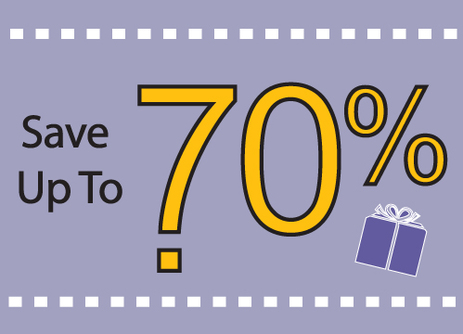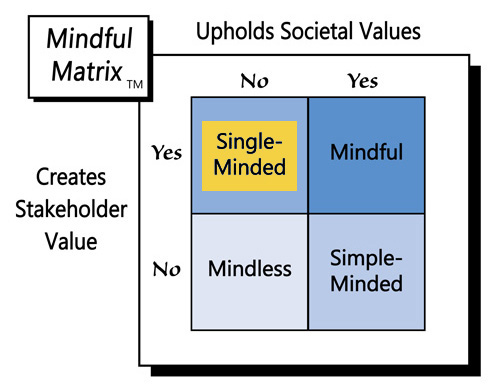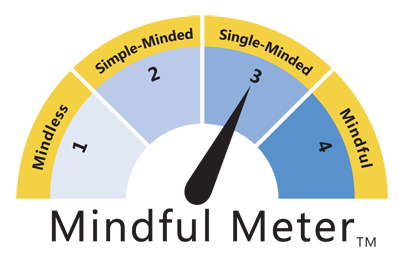It’s not surprising, therefore, that many businesses include ambiguity in their promotion. The difference, though, is that this communication is more premeditated and it impacts large numbers of people in significant ways, which is why we need to examine it!
Although there are countless ways in which deception via vagueness can occur, one of the approaches I’m seeing more and more involves the words “Up To.” In fact, even as I was writing the last sentence, a new example entered my inbox! It was an email from Target, telling me that I can “Save up to 60%” on clearance items.
Unfortunately Target is far from the only company employing obscurity as a promotional tactic. A quick scan of emails I received over just the past few days revealed many similar examples:
- American Airlines AAdvantage Program: “Save up to 35% on miles for our 35th anniversary”
- Bed Bath & Beyond: “Shark Manufacturer’s Savings Event. Up To $70 Off”
- Best Buy: “Apple Watch – Save Up To $100”
- Dick’s Sporting Goods: “Save up to 50% Off. On Select Items. Online Only”
- Home Depot: “Save Up to 50% OFF – Spring Power”
- Kohl’s: “Clearance Event. Save Up To 70%”
- Lowe’s: “Up To 20% OFF Select Grills”
- Office Depot: “Save Up To $200 on select Xerox printers”
Based on my own experience, one of the worst “Up To” offenders is Home Depot. Last week the home improvement giant sent me four emails containing the following ploys: “Up to 50% Off Patio”; “Up to 24 Months Special Financing on your First Storewide Purchase”; “Up to 44% Off Outdoor Power”; “Up to 30% OFF with Appliance Special Buys”; “Up To 10% OFF Kitchenaid Grills.”
But, isn’t retail's offer to save us some money a good thing? It is. The problem with these “Up To” examples, however, is that we don’t know how much we'll actually save. “Up to 70%” could turn out to be a discount of 70%, but it might only mean 5% or 10%, which for most items is not that big of a deal.
When we read these ads, shouldn’t we realize that we won’t necessarily receive the maximum amount? Yes, in a strict rational sense we do draw that conclusion. However, these ads tap into psychological behavior that makes us want to believe we’ll receive the biggest discount.
There’s actually a name for this phenomenon: It’s called unrealistic optimism. Examined in the Journal of Personality and Social Psychology (1980), the theory suggests that when people are presented with the possibility of positive outcomes, they’ll naturally rate their own chances of experiencing the outcomes higher than their peers’ chances. In contrast, if the predicted consequences are negative, people tend to believe others will more likely to experience them.
So, perennial pessimists aside, most people are hardwired to expect best case scenarios for themselves. “Up To” ads play into that unrealistic optimism. Sure, every product won’t be 70% off, but we rationalize that what we’re looking for will be. We take the bait and open the email, visit the website, or drive to the store, etc. As we realize we’re not going to land the deal we had hoped for, each portion of time and effort spent becomes a sunk cost that makes us increasingly unlikely to back out, even if we end up paying more than we planned, or we don’t get exactly what we wanted.
The deception of “Up To” ads is very simple, yet they’re effective because they leverage an advanced understanding of both psychology and economics. Even though consumers are to some extent deceived, if they receive something worthwhile they may still exit the exchange satisfied, albeit not as happy as they had hoped to be. Meanwhile, businesses that make sales tend to be pleased, so “Up To” ads can create stakeholder value, which probably explains why we keep seeing more of them.
Subtle deception, however, is still deception. It might be minor in comparison to other dishonesty, but this intentional elusiveness also erodes the foundation of trust upon which strong societies are built. For these reasons, retailers’ use of “Up To” advertising is an unambiguous example of “Single-Minded Marketing.”
Learn more about the Mindful Matrix and Mindful Meter.
Check out Mindful Marketing Ads and Vote your Mind!




 RSS Feed
RSS Feed